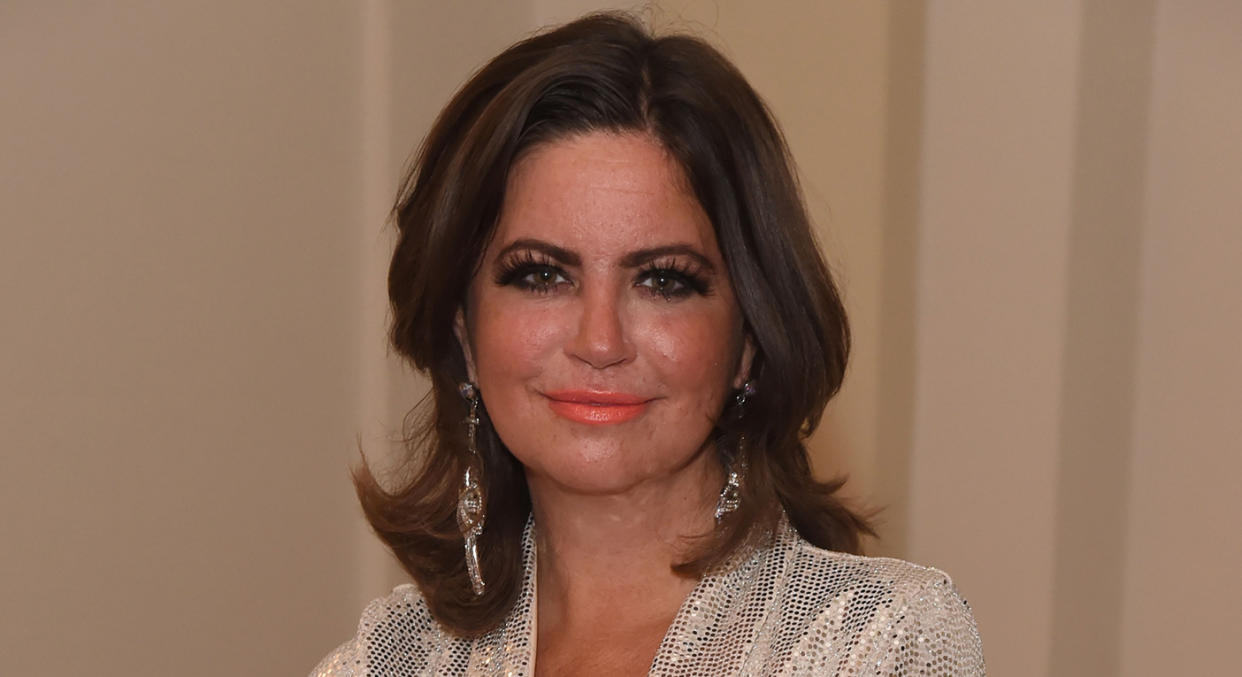BBC presenter with 'incurable cancer' is free of the disease

A BBC presenter who was told her cancer is incurable is free of the disease.
Deborah James - co-presenter of the You, Me & the Big C podcast - was diagnosed with advanced bowel tumours in 2016.
READ MORE: Mum had chemotherapy and a double mastectomy after doctors misdiagnosed her
Three years on, the columnist told her 92,200 Instagram followers “cancer chose the wrong girl”.
In a post that has been liked 23,200 times, James claims after “10 operations, too many scans, a lot of chemo, some fancy drugs, lots of tears” there is “no evidence of cancer in her body”.
The 38-year-old’s doctors’ “rewrote the text book” to “cut out, burn, zap, ablate” her initial 15 tumours.
Although “happy”, James has not “celebrated” and is “realistic” the disease may return.
In a later post, she wrote: “On paper I’m in a great place.
“In reality I’m scared, waiting for the floor to be whipped, wondering how long it will last.
“Knowing it will rear its ugly head again one day? Surely it will. Statistically it will.”
James is still being treated at the Royal Marsden hospital in west London.
“Essentially nothing changes for me,” she told BBC Breakfast's Naga Munchetty. “Why change something when it's working?”
James is training to run a marathon for the treatment centre.
Bowel cancer is the fourth most common form of the disease in the UK, with more than 42,000 people being diagnosed every year, Bowel Cancer UK statistics show.
Also known as colorectal cancer, 147,950 new cases are expected to arise this year in the US, according to the American Cancer Society.
Bowel cancer is treatable if caught early, with “nearly everyone surviving” if diagnosed at the “earliest stage”.
This “drops significantly as the disease develops”, with more than 16,000 dying from the condition every year in the UK, making it the “second biggest cancer killer”.
James was initially diagnosed with stage 3 bowel cancer.
Cancer Research UK defines this as “larger” tumours that may have started to spread to surrounding tissue and “lymph nodes in the area”.
James’ disease was later reclassified as stage four, or metastatic, when it spread to her lungs.
The former deputy head teacher started her podcast in March 2018 alongside Rachael Bland and breast-cancer survivor Lauren Mahon.
Bland, a Radio 5 live presenter, died of breast cancer later that year, aged 40. Her widower Steve Bland has since stepped in.
Can you overcome incurable cancer?
Incurable cancer is generally defined as that which has spread, grown too big for treatment to work or returned after therapy, according to the Australian charity Beyond Five.
Patients may continue to be treated to enable them to enjoy the every day without symptoms or prolong their life.
How a patient can “beat” the disease after such a poor prognosis is unclear.
Cancer research is ongoing, with discoveries being made regularly.
It may therefore be that a disease that seemed “hopeless” just a few years ago, now responds to new treatment approaches.
Immunotherapy is also a relatively recent development, with many success stories.
This “uses the power of the immune system to prevent, control and eliminate cancer,” according to the Cancer Research Institute. It is unclear if James had immunotherapy.
It is worth noting, however, being in remission - when the signs or symptoms of cancer are reduced or gone - is different from being disease-free, the National Cancer Institute reports.
Remission can be partial or complete, with the latter indicating no sign of the disease whatsoever.
If you remain in remission for five years or more, doctors may say you are “cured”.
Even after treatment, cancer cells can remain in the body, allowing the disease to come back one day.
This tends to occur within the first five years after treatment, but can be even later.
Medics therefore cannot say for sure you are cured, with most claiming there is no sign of cancer at this time.
Caroline Geraghty, Cancer Research UK’s specialist cancer information nurse, told Yahoo UK: “It’s wonderful to hear Deborah’s news that she is now in a cancer-free place and that there is no evidence of cancer in her body.
“More people are now able to live longer with advanced bowel cancer because of research and clinical trials assessing the effectiveness of new cancer treatments, but sadly this isn’t the case for everybody.
“It’s important we continue research into life-saving treatments so more people can be in the same position as Deborah.”

